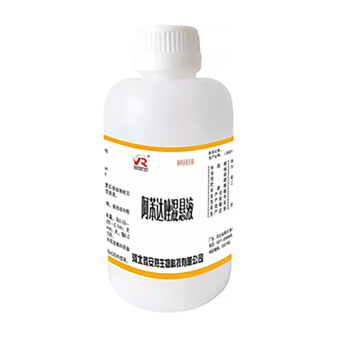- Afrikaans
- Albanian
- Amharic
- Arabic
- Armenian
- Azerbaijani
- Basque
- Belarusian
- Bengali
- Bosnian
- Bulgarian
- Catalan
- Cebuano
- Corsican
- Croatian
- Czech
- Danish
- Dutch
- English
- Esperanto
- Estonian
- Finnish
- French
- Frisian
- Galician
- Georgian
- German
- Greek
- Gujarati
- Haitian Creole
- hausa
- hawaiian
- Hebrew
- Hindi
- Miao
- Hungarian
- Icelandic
- igbo
- Indonesian
- irish
- Italian
- Japanese
- Javanese
- Kannada
- kazakh
- Khmer
- Rwandese
- Korean
- Kurdish
- Kyrgyz
- Lao
- Latin
- Latvian
- Lithuanian
- Luxembourgish
- Macedonian
- Malgashi
- Malay
- Malayalam
- Maltese
- Maori
- Marathi
- Mongolian
- Myanmar
- Nepali
- Norwegian
- Norwegian
- Occitan
- Pashto
- Persian
- Polish
- Portuguese
- Punjabi
- Romanian
- Russian
- Samoan
- Scottish Gaelic
- Serbian
- Sesotho
- Shona
- Sindhi
- Sinhala
- Slovak
- Slovenian
- Somali
- Spanish
- Sundanese
- Swahili
- Swedish
- Tagalog
- Tajik
- Tamil
- Tatar
- Telugu
- Thai
- Turkish
- Turkmen
- Ukrainian
- Urdu
- Uighur
- Uzbek
- Vietnamese
- Welsh
- Bantu
- Yiddish
- Yoruba
- Zulu
Dec . 23, 2024 06:47 Back to list
Dexamethasone Sodium Phosphate Injection as a Treatment Option for COVID-19 Patients
Dexamethasone Sodium Phosphate Injection for COVID-19 An Overview
The COVID-19 pandemic has prompted unprecedented global health challenges, leading to a race for effective treatments to mitigate the impact of the virus. Among various pharmacological options, dexamethasone, a corticosteroid, has emerged as a crucial component in the management of severe cases of COVID-19, particularly in patients requiring supplemental oxygen or mechanical ventilation. This article explores the role of dexamethasone sodium phosphate injection in the treatment of COVID-19.
Understanding Dexamethasone
Dexamethasone is a synthetic glucocorticoid that exhibits potent anti-inflammatory and immunosuppressive properties. When used as a treatment, it helps reduce inflammation and modulate the immune response, which can be beneficial in severe COVID-19 cases where an overactive immune response, commonly referred to as a cytokine storm, can lead to serious complications.
Clinical Evidence Supporting Dexamethasone Use
The landmark RECOVERY trial in the United Kingdom provided pivotal evidence for the efficacy of dexamethasone in COVID-19 management. Published in June 2020, the trial revealed that dexamethasone reduced mortality by one-third in patients on ventilators and by one-fifth in those receiving oxygen. These findings led to the World Health Organization (WHO) and other health authorities recommending the use of dexamethasone for patients with severe COVID-19.
Dexamethasone sodium phosphate injection, a soluble form of the drug, is preferred in hospital settings due to its rapid onset of action and ease of administration
. Typically, it is administered intravenously, allowing for efficient delivery to critically ill patients who cannot take oral medications.dexamethasone sodium phosphate injection for covid

Mechanism of Action in COVID-19 Treatment
The primary mechanism of dexamethasone's action in COVID-19 is its ability to down-regulate inflammatory processes. In severe COVID-19 cases, the body’s immune system can become hyperactive, leading to excessive inflammation and tissue damage. Dexamethasone helps to counteract this effect, suppressing the production of pro-inflammatory cytokines and mediators that contribute to lung injury and other complications.
By reducing inflammation in the lungs, dexamethasone can improve oxygenation and decrease the demand for mechanical ventilation in patients who are critically ill. This not only has the potential to save lives but also to alleviate pressure on healthcare systems overwhelmed by a surge in COVID-19 cases.
Dosage and Administration
For hospitalized patients requiring respiratory support, dexamethasone sodium phosphate is typically administered at a dose of 6 mg once daily, either intravenously or orally, for up to 10 days, depending on clinical response and the guidance of healthcare providers. It is crucial to monitor patients for potential side effects, which can include increased risk of infections, hyperglycemia, and gastrointestinal bleeding.
Conclusion
The integration of dexamethasone sodium phosphate injection into the treatment protocol for severe COVID-19 has marked a significant advancement in improving patient outcomes. Ongoing research and clinical trials continue to refine the understanding of its role and refine treatment guidelines. As we navigate the complexities of the pandemic, dexamethasone remains a testament to the importance of effective therapeutics in combatting infectious diseases and saving lives. Health professionals must stay informed and vigilant in utilizing such treatments to optimize care for patients affected by COVID-19.
-
Guide to Oxytetracycline Injection
NewsMar.27,2025
-
Guide to Colistin Sulphate
NewsMar.27,2025
-
Gentamicin Sulfate: Uses, Price, And Key Information
NewsMar.27,2025
-
Enrofloxacin Injection: Uses, Price, And Supplier Information
NewsMar.27,2025
-
Dexamethasone Sodium Phosphate Injection: Uses, Price, And Key Information
NewsMar.27,2025
-
Albendazole Tablet: Uses, Dosage, Cost, And Key Information
NewsMar.27,2025













